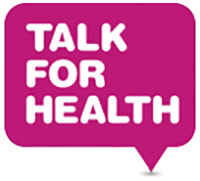Recently, we’ve realised that we need to extend our vocabulary – and we hope you might help.
For years, we’ve used a shorthand to differentiate between the groups of individuals we train to speak and listen for better mental health.
Internally, we refer to the groups as P1, P2, P3 – and so on.
Horribly dull! And also not particularly helpful, because how are we supposed to remember the difference between P31, say, and P37?

So here’s what we’re thinking…
Do you remember when meteorologists started to refer to hurricanes and other great storms by name? Do you remember what a difference that made?
We’d like to do something like that. But what kind of names should we use?
Male or female names might cause confusion: our groups are usually mixed, and we don’t want to put men off joining a group with a woman’s name, or vice versa.
- What about plants? Or particular types of plants:
- Flowers?
- Trees?
- Or chemical elements, from the periodic table?
- Or how about streets in Islington, in recognition of the financial support we receive from Islington GPs, and the value of community in everything we do?
Perhaps you have a better idea.
Please leave a comment below. And when we’ve come up with a decent shortlist, perhaps then we’ll put it to a vote…


I’ve heard my Programme referred to as “Manor Gardens November 2018”- venue, month and year.
Means you can easily relate Programmes to each other or to your own chronologically: “so you were in the Programme just before mine”; “so you did your training three years ago”.
No need to choose a name – or you could have a name as suggested too: “Sunflowers – Manor Gardens November 2018”
? using names could seem competitive; another group’s got our favourite name already; a Programme chooses a name and finds out that there’s already a Programme called that…
Thanks Paul.
I did a training program once and groups were assigned names by the organisation by theme.
My year, they chose golfers, and my group was called Ballesteros. It meant nothing to me either way, but was easy to recall.